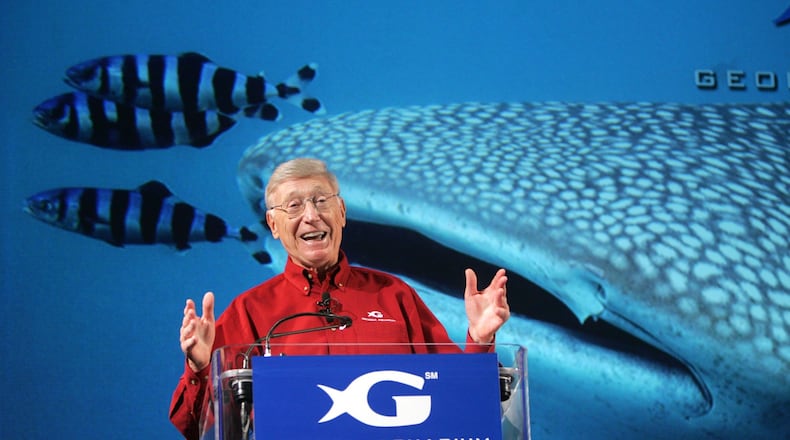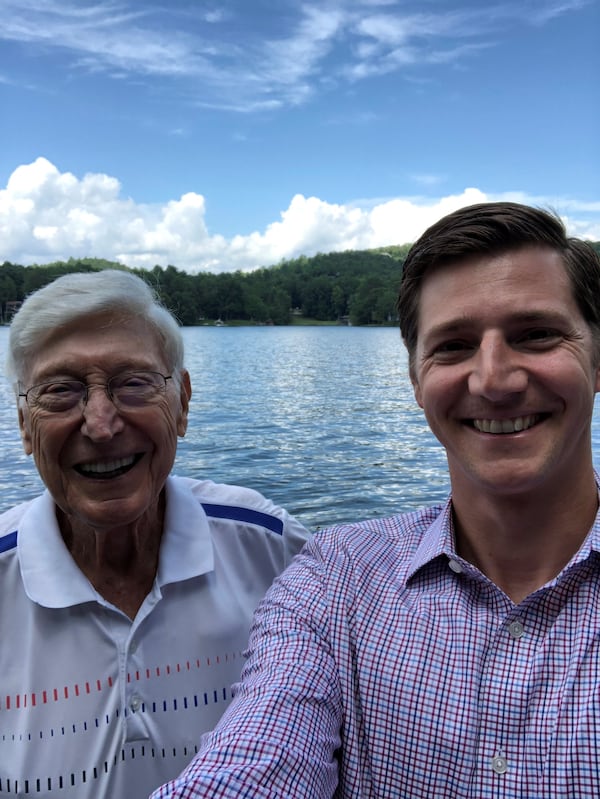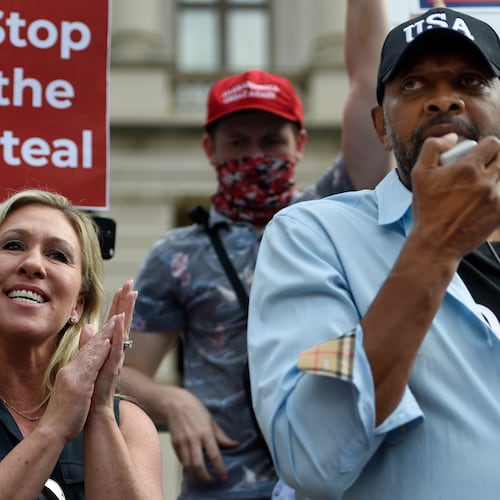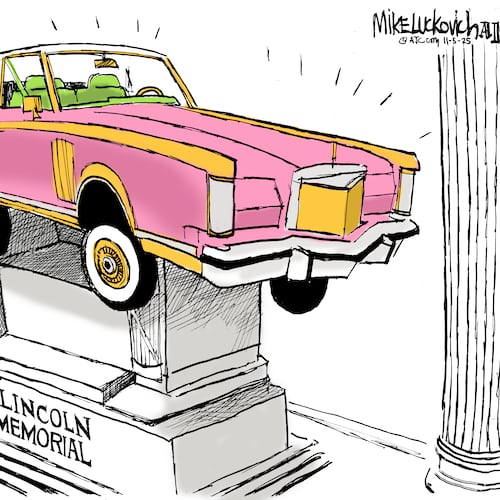It’s been a year since America lost one of its greatest patriots, business leaders and philanthropists.
When Bernie Marcus passed away on Nov. 4, 2024, at the age of 95, the country lost far more than the co-founder of The Home Depot. We lost a man who believed that free enterprise, personal grit and a deep sense of purpose could be used to repair the world.
I met him when I was 28. I had just left active duty as a U.S. Army Green Beret and was sitting in his office, résumé in hand, wondering why one of the most successful business leaders in America would take time to see me.
Before I could speak, Bernie leaned forward, scanned the page and asked: “Your resume says you’re a Green Beret. Let me ask you something. Can you kick my ass?”
That was my introduction to Bernie Marcus. I didn’t know it then, but that moment would launch a decade-long mentorship that would change the course of my life. It was classic Bernie: direct, unfiltered, and always searching for something deeper than what was on paper.
Marcus practiced philanthropy with impact
Credit: Handout
Credit: Handout
Bernie wasn’t interested in my rank, medals, or degrees. He wanted to know if I had grit. If I was a fighter. If I could help him take on the problems that mattered most to him. And that’s exactly what we did.
The entrepreneurial philanthropists fired from their jobs but fueled by a bigger vision, Bernie Marcus and Arthur Blank built The Home Depot from scratch, launching the DIY (do-it-yourself) movement, transforming retail, and eventually growing it to a $150 billion company.
But for Bernie, wealth was just a tool. The real goal was impact. He and his wife, Billi, had long committed to giving it all away.
But unlike many philanthropists who simply write checks, Bernie took a different approach. He treated philanthropy like a business. He sought out problems the way he once sought out market opportunities, demanding results and refusing to accept inefficiency. “I worked very hard for this money. I’m not just giving it away, I expect a return. The return is impact,” he said.
He called it entrepreneurial philanthropy. He didn’t donate to causes; he invested in solutions. He didn’t fund organizations; he built movements. Whether it was making autism a national priority by helping launch Autism Speaks, transforming the Center for Disease Control and Prevention’s emergency response capabilities with a cutting-edge operations center, or building the world’s largest aquarium in landlocked Atlanta, Bernie brought a founder’s mindset to philanthropy.
Bernie tackled big problems with bold ideas and expected measurable results.
Fixing veteran care the Bernie Marcus Way
Credit: Handout
Credit: Handout
One of Bernie’s most defining philanthropic missions is transforming care for veterans.
In 2007, he visited the Shepherd Center in Atlanta and met a young soldier named Eric, who had been severely wounded in Iraq. After months in military hospitals where he was told he’d never walk again, Eric was transferred to Shepherd. Within weeks, he was standing with supports. Within months, he was walking with braces.
Bernie saw a problem: a broken system failing its warriors. And he decided to fix it. That mission is where our paths officially crossed. He wanted to hire a veteran to help him ensure our warriors receive the support they’ve earned.
He immersed himself in the issues. We met with experts, commissioned research, and focused on the root causes of veteran suicide, posttraumatic stress, addiction, and traumatic brain injury. He backed programs that worked.
He helped launch the Marcus Institute for Brain Health in Colorado and developed the Warrior PATHH program at Boulder Crest Foundation. Then, seeing the results, he scaled again creating the Avalon Action Alliance, a national network of programs for veterans and first responders that now serves thousands of people each year.
Saving lives, restoring families, and giving our defenders back their futures.
Bernie’s giving wasn’t about charity. It was about fixing broken systems that failed people who deserved better.
Carrying forward his legacy
In the year since Bernie’s passing, I’ve had time to reflect on the scale of what he built, and what he expected from those of us he trusted to carry it on. Bernie didn’t just build buildings or fund programs. He built people.
He took a young Green Beret who couldn’t spell philanthropy and turned him into a problem solver on a whole new battlefield. He showed me that philanthropy isn’t about feeling good. It’s about doing good; measurably, relentlessly, and at scale.
He was never content with the status quo. “You can’t be satisfied with where you’re at because you have to think about all the lives you’re not saving.”
That’s the standard he set. And it’s the one we still carry at The Marcus Foundation. Bernie’s legacy isn’t just etched in granite, measured in grant totals, or even the millions of lives he touched. It lives on in a philosophy. One that challenges the next generation of leaders to think bigger, move faster, and never settle for anything less than solving the problem.
And as for Bernie’s original question, whether I could kick his ass? After more than a decade with him, I know the answer: No one kicks Bernie Marcus’s ass.
His body may be gone, but his spirit is undefeated. A year later, his voice still pushes us forward — to keep building, keep fighting, and, as he titled his last book, keep kicking up some dust.
Marcus Ruzek is a former U.S. Army Green Beret who spent 11 years at The Marcus Foundation working closely with Bernie Marcus to advance his bold philanthropic vision. He now serves as senior program director at the foundation.
About the Author
Keep Reading
The Latest
Featured



